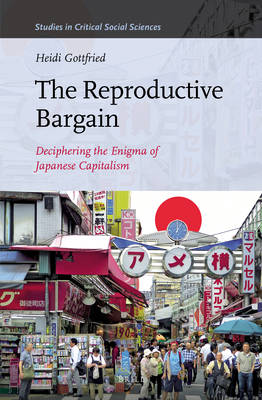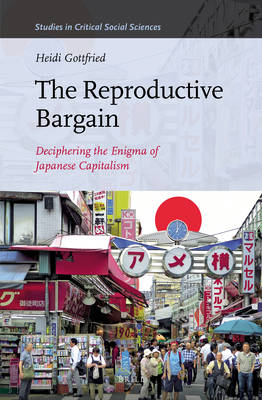
- Afhalen na 1 uur in een winkel met voorraad
- Gratis thuislevering in België vanaf € 30
- Ruim aanbod met 7 miljoen producten
- Afhalen na 1 uur in een winkel met voorraad
- Gratis thuislevering in België vanaf € 30
- Ruim aanbod met 7 miljoen producten
€ 244,45
+ 488 punten
Uitvoering
Omschrijving
The Reproductive Bargain reveals the institutional sources of labor insecurities behind Japan's postwar employment system. This economic juggernaut's decline cannot be understood without reference to the reproductive bargain. The historical terms of the reproductive bargain rests on the establishment of company citizenship in support of a standard employment relationship, privileging the male breadwinner in calculations for benefits in exchange for the salarymen working long hours in relatively secure jobs at the enterprise and relying on women's unpaid reproductive labor in the family and increasingly on women's waged work in nonstandard jobs. Such institutionalized relationships, formerly the engines of growth and stability, drag economic expansion and employment security. Gendering institutional analysis is a key to deciphering the enigma of Japanese capitalism.
Specificaties
Betrokkenen
- Auteur(s):
- Uitgeverij:
Inhoud
- Aantal bladzijden:
- 188
- Taal:
- Engels
- Reeks:
- Reeksnummer:
- nr. 77
Eigenschappen
- Productcode (EAN):
- 9789004291492
- Verschijningsdatum:
- 22/05/2015
- Uitvoering:
- Hardcover
- Formaat:
- Genaaid
- Afmetingen:
- 160 mm x 239 mm
- Gewicht:
- 421 g

Alleen bij Standaard Boekhandel
+ 488 punten op je klantenkaart van Standaard Boekhandel
Beoordelingen
We publiceren alleen reviews die voldoen aan de voorwaarden voor reviews. Bekijk onze voorwaarden voor reviews.










